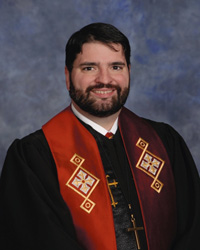By Jeff Brumley
Bryan Hatcher was a Baptist pastor once, so he gets it when ministers buckle under the strain of long work weeks, budget pressures and that feeling of constantly being in a fish bowl.
And because he has since provided years of mental health counseling for ministers, he got it when Stephen Shoemaker resigned his pulpit at Myers Park Baptist Church in Charlotte, N.C., on Feb. 17 to continue his treatment for depression.

It’s vital, regardless of profession or expectations, to seek mental health treatment, said Hatcher, CareNet director of center development and education with Wake Forest Baptist Medical Center in Winston-Salem, N.C.
“There is a cultural expectation that our pastors have it all together and that they are the last people who are going to be depressed,” he said.
Instances of clergy depression are rising right along with those of the general population. The Centers for Disease Control and Prevention says more than 25 percent of all Americans suffer from a mental illness, and that 50 percent of all adults in the U.S. will develop one in their lifetimes.
In seeking help for severe depression, Shoemaker, 64, is an example of a trend that’s seeing more ministers confronting mental illness and letting their congregations know about it. He had taken a month off for treatment before returning to the church and announcing the need to work full-time on his recovery.
Newer challenges
“I think people are seeking treatment more often,” said Christopher Carlton, an ordained Methodist minister and director of Emory Clergy Care, a Georgia-based agency that provides counseling and other wellness services for ministers.

But Carlton, who also provides psychological evaluations for some Cooperative Baptist ministers, said the numbers of clergy experiencing depression also has increased because the profession has become tougher.
Clergy financial and sexual abuse scandals have publicly tarnished ministers, while declines in membership have added financial stresses that turn pastors into nearly full-time capital campaign managers, Carlton said.
A difficult economy and reductions in church staff have forced individual ministers to shoulder more duties, in turn leading to feelings of isolation and over-work experienced by even the healthiest pastors, he said.
And there’s personal debt. Carlton said seminary graduates are leaving school with mountains of debt previous generations didn’t face.
“We are seeing a larger rate of burnout in our pastors,” he said. “We are also seeing the career option of being a pastor as a less attractive route.”
Traditional challenges
There are also inherent factors in the ministry that are exacerbated when ministers don’t take care of themselves physically, spiritually and emotionally, said Rae Jean Proeschold-Bell, research director for Duke Divinty School’s Clergy Health Initiative.
Feeling called to their work makes pastors more likely to experience existential crises when difficulties are encountered in the workplace, Proeschold-Bell said.
Discord in the congregation, disagreements over ministry and finances – all natural occurrences – can trigger depression.
“Clergy worry if they have not been living faithfully to God,” she said. “For them, it can take on divine significance that can resonate more deeply with them.”
Even in the healthiest churches, she said, pastors tend to be placed on pedestals, making it even harder for them to express concerns or seek help when problematic emotions arise.
The result often is social isolation – which is also one of the top predictors of depression.
Another “top predictor of depression is the unpredictability of emotions,” she said, explaining that bounding between weddings and funerals, baptisms and hospital visits means “clergy don’t know at any given moment what emotions they are going to be facing.”
Even traditional stressors can become gateways to depression when ministers are working and eating more, and sleeping and exercising less. Forgoing vacations and other days off can also lead to mental illness, Proeschold-Bell said.
“Their bodies are a gift from God, and that gift or that grace needs to be responded to by being a good steward of yourself,” she said. “Live the joyful life that God really wants for us.”
Self-care the key
Besides getting more sleep and exercise, Hatcher said seeking therapy, joining peer groups or developing one-on-one relationships with clergy can provide much-needed outlets for stress.
“There are professional coaches and clergy coaches who can help with lifestyle management,” Hatcher said.
Another key to staving off depression: “Setting firm boundaries that are firm and healthy, but not overly rigid.”
And stop putting jobs ahead of their own physical and spiritual wellbeing.
“It’s when I get hyper-focused on work and don’t get to the gym and start living on coffee … that my thinking gets cloudy and my feelings get cloudy,” Hatcher said.
